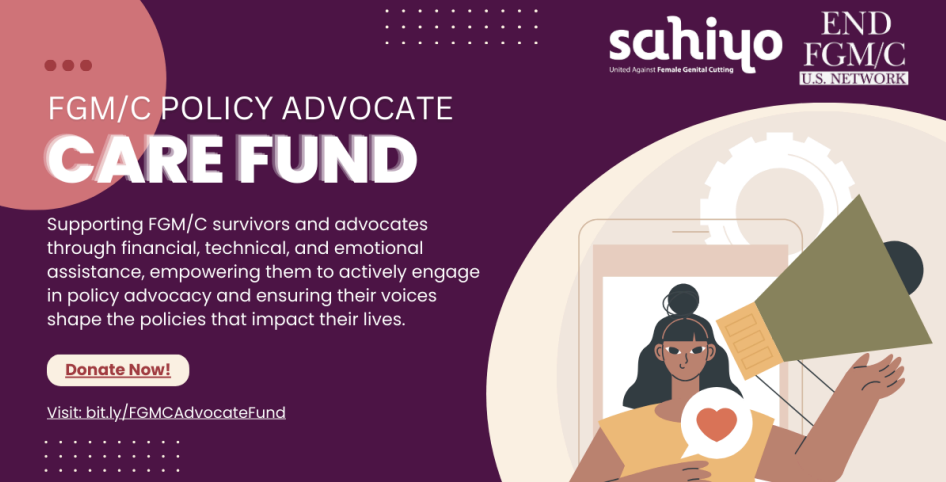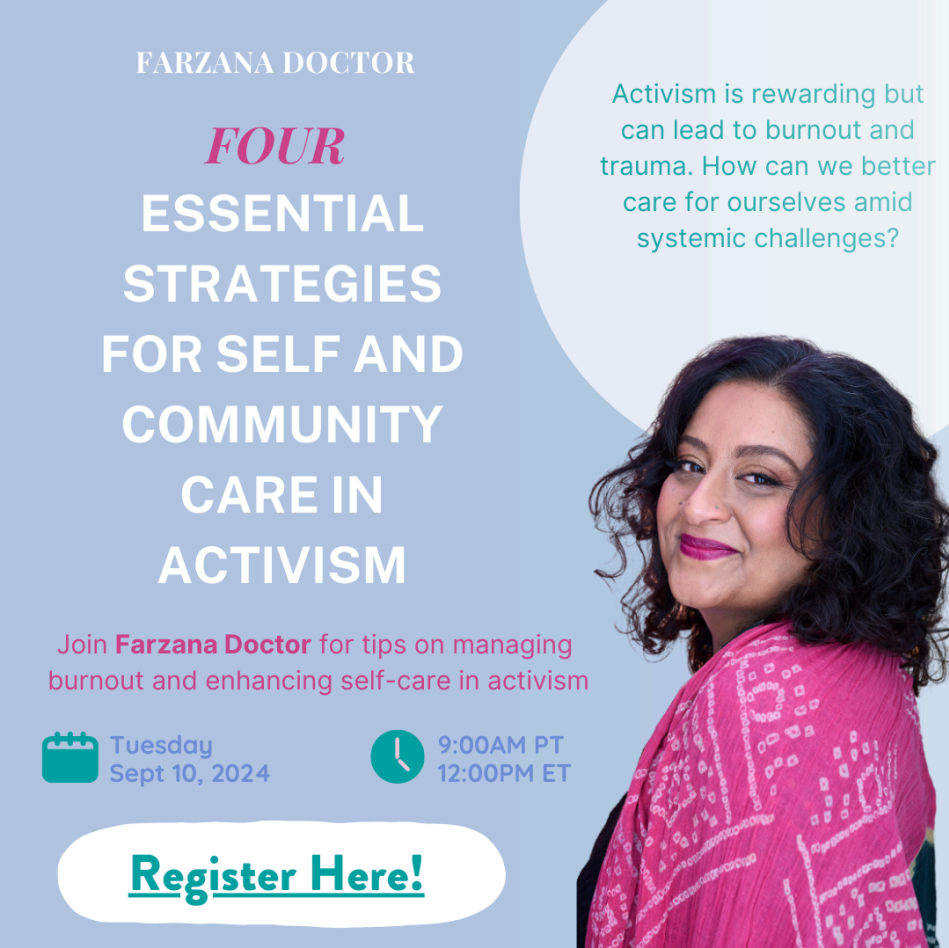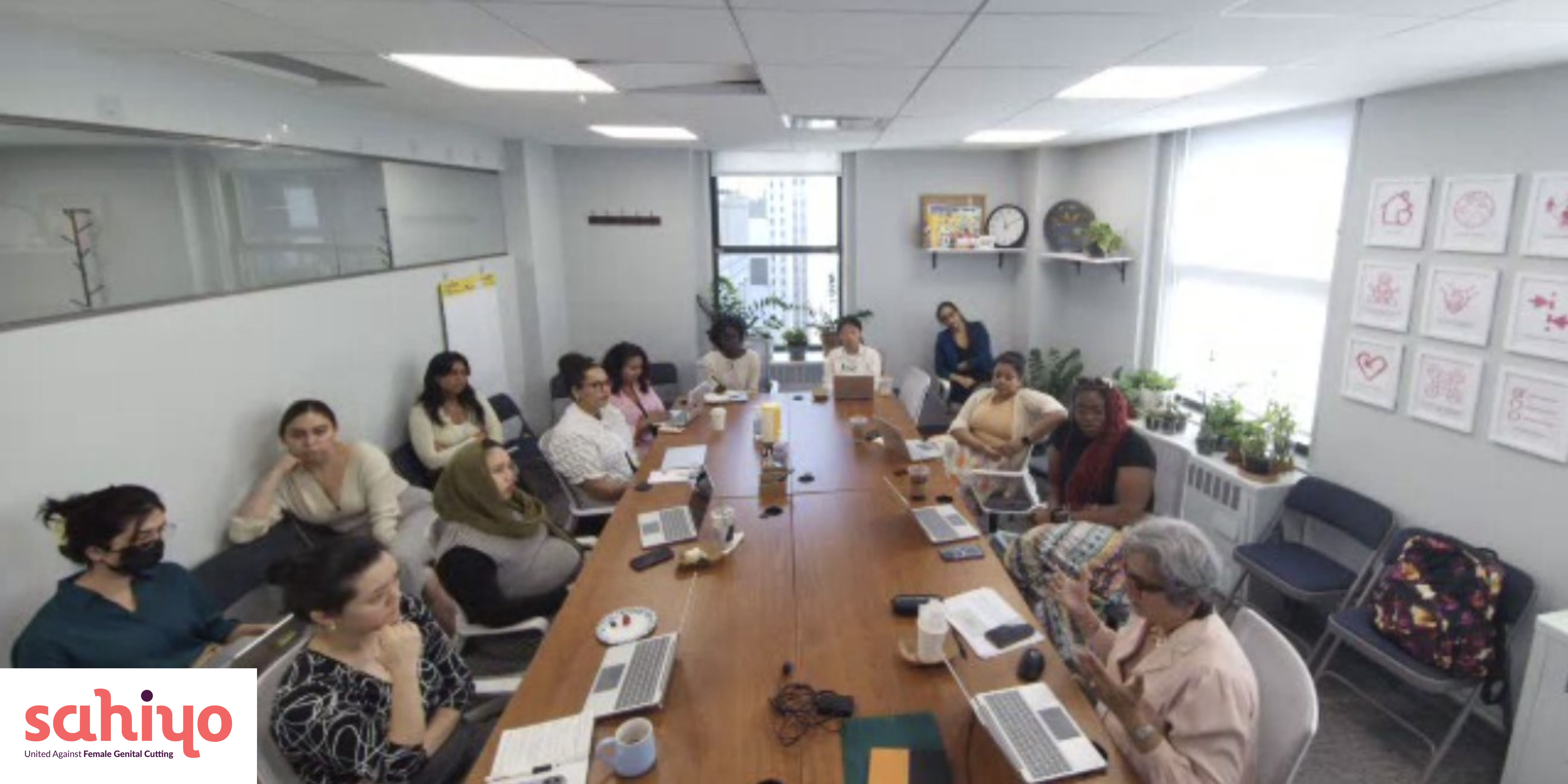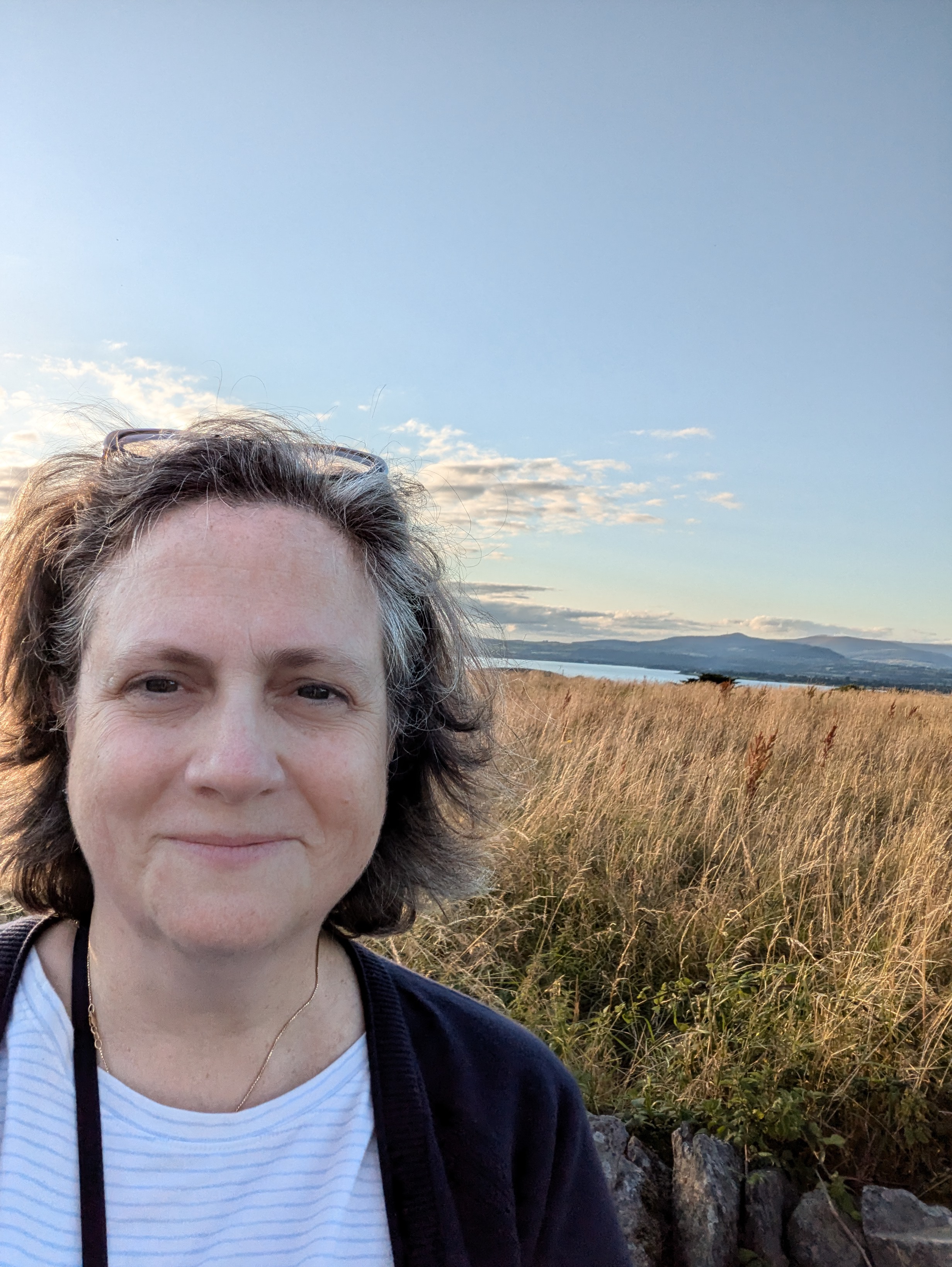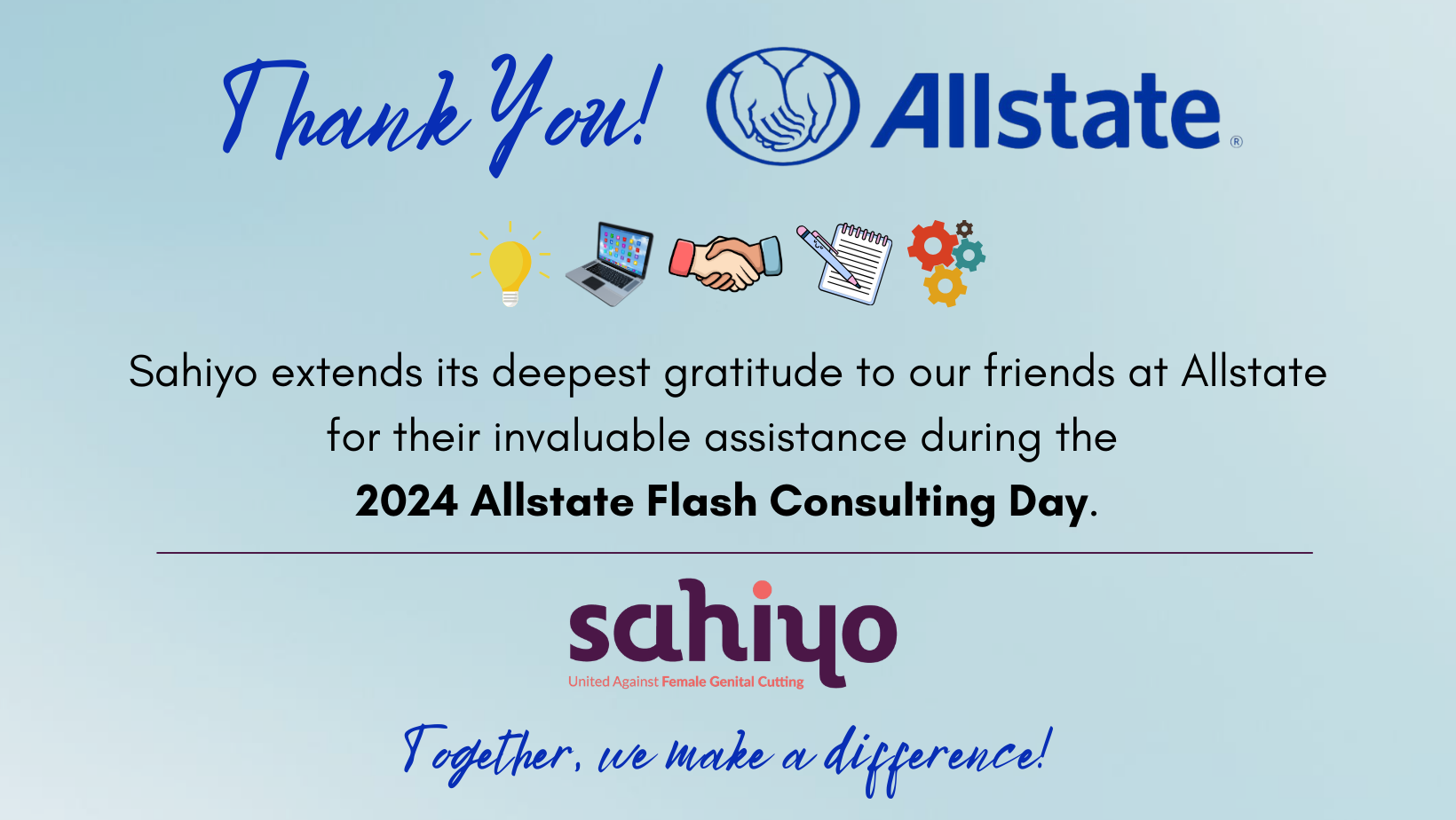By Juliet Shires
Recently, policy interns at Sahiyo have been interviewing members of the Connecticut (CT) Coalition to End FGM/C to learn more about coalition members' important work toward policy creation on female genital cutting (FGC). In the first blog of the series, Sahiyo’s policy intern, Juliet Shires, interviewed the Executive Director of the U.S End FGM/C Network and CT Coalition member Caitlin LeMay. For this second blog, she talked to Joanne Golden, a member of the Sahiyo U.S. Advisory Board and an attorney working in Massachusetts. Juliet and Joanne discussed how listening to survivors and those from affected communities and her personal knowledge as a lawyer strengthens coalitions to more effectively pass holistic legislation.
The Importance of the Lawyer-Survivor Partnership
Joanne Golden's journey as an activist working to prevent FGC started when she learned about the harmful practice and sought to pass legislation in Massachusetts to protect children from undergoing it, which eventually happened after seven years of advocacy efforts in August 2020. After being successful in Massachusetts, she began advising the CT Coalition to End FGM/C on how to do the same. She explains how meeting Mariya Taher, the Executive Director of Sahiyo U.S., and other survivors in 2015 changed her perspective on how to approach the issue of FGC as well as the understanding of her role as a lawyer within coalition work:
"My mindset changed in that it wasn’t really about what I was doing [as a lawyer] but who we were doing it for.”
Lawyers and lawmakers are needed to support the bill and get it passed through the legislative system as they bring the knowledge of how these systems work, but that work is meaningless without involving those communities and individuals impacted by FGC, the voices of survivors are needed to contribute to those laws, Joanne explained.
“At the time a majority of people who [shared their stories] were at-risk were people of color, Muslim, and oftentimes immigrants. I fit none of those…My role wasn’t to put myself forward to ask all the questions. [It was to] let the survivors or to let people who could testify, [like doctors with medical/professional relationships to survivors,] take charge in those situations…It was saying how can I use my knowledge and my experience (as a woman and a lawyer) to protect the vulnerable. The question is how to apply that.”
Joanne recognizes how in her role as a lawyer she must be especially culturally sensitive when approaching FGC given that it is often a deeply rooted practice in many different cultures.
“I think first of all it's important to have some humility and to understand that you do not know everything [as a lawyer]...you come at it from one aspect and say how can I use my knowledge and experience as a human and a woman [to help]? I know the law and how it’s meant to work, but the question is how to apply that.”
Being humble also involves educating yourself, according to Joanne. It demonstrates your capacity to learn and listen to survivors of FGC to make the work you do more effective. On that note, Joanne contacted the Islamic Cultural Center in Boston and spoke to the Imam about what could be some ways to best approach FGC-impacted communities:
“How can we get the message across that FGC is not necessary, not from a religious point of view, not from a legal point of view? And how to make people comfortable with the idea that they can abandon this practice for their benefit? Those are the tough conversations to have…once I was knowledgeable enough to make those arguments, I stepped forward and I thought I could be an advocate to help educate others.”
Overall, Joanne stresses the importance of carefully crafting bills so that “people don’t get to use the law for their own agenda.” For example, the Massachusetts coalition reached out to GLAAD, an LGBTQ advocacy organization, to rephrase the bill on FGC so that it didn't conflate gender-affirming surgery with FGC, and also make the former illegal. Joanne says lawyers provide the expertise and knowledge to ensure legislation is not written in a way that could bring about unintentional harmful consequences without people realizing it.
Misconceptions Around FGM/C and the Law
Since FGC is often connected with ideas of religion amongst some practicing communities, Joanne explains how some pro-FGC individuals believe that FGC should fall under the First Amendment as freedom of religion.
“[People think that] the First Amendment protects religion. And it doesn’t protect religion, it protects your practice of your beliefs. It protects the individual. So, in understanding that [FGC is] not rooted in religion, it was a social practice and therefore we would not be denying someone’s ability to practice their religion or their faith…it has to do with more than religion...Really, what you’re talking about is a way to suppress a woman’s sexuality.”
Joanne explains that to successfully pass state legislation on FGC, an American perception, one emphasizing the individual rather than the collective, can be helpful.
“There’s a perception in the United States that we’re all about the individual and not about the family and not about society [which differs from other democracies across the world]. I think learning how to say that what you’re doing is preserving society by protecting the individual is important… [FGC can be seen as] a way to suppress a girl’s individuality.”
Joanne also illustrates the importance of understanding the American political context in passing laws by explaining that because the US government is based on a federalist system, there is a great need for FGC legislation to be enacted in every state. Particularly since the 2018 Michigan Case ruled that FGC was a criminal activity on the state level and that Congress had overstepped its authority to pass such a law in the manner that it had.
“Because the federal law existed since 1996, people thought that was enough…they forget federalism. There are areas of the law that are exclusive to the federal government and the rest is for the states… The federal government can only do so much… If anything came out of [the Michigan case] it was so we could show people ‘look this is what happens’ without states law [on FGC]”
Once state laws are passed, however, advocacy still needs to occur to ensure the laws are implemented and function as they should.
“The most vulnerable in society are not disposable…[Part of showing this is] having education and resources available to them to say no, and if no is not enough and [FGC] happens then to get them services to help them heal…The work’s not done just because the bill has passed.”
The bill in Massachusetts passed in 2020, and there was an educational component, which Joanne pointed out has not been adequately addressed as efforts on behalf of the Department of Public Health were diverted to addressing the COVID-19 pandemic.
Now that we are past that, “we have to get their attention again…The law is there, and if a case is brought then a judge can use it [to prosecute the perpetrators of FGC]... If we can prevent it from happening [through public education], I think that’d be a much bigger win”
Joanne also shared that resources need to be used properly to educate Massachusetts residents about the harms of FGC.
“So you need to have education in nursing programs and in medical doctor programs for those who will have patients that have undergone this physical, emotional, and mental trauma due to FGM/C and you’re going to have to give them services. Then there’s the prevention part of it which is to let people know that this is not a required religious practice. This is not a tradition that should be continued. You’re not only harming the child and the woman she’s going to become but also your family and your society as a whole… Having education and resources available allows impacted communities to say no to having their daughters cut.”
Thank you to Joanne Golden for taking the time to sit down with our policy intern, Juliet Shires, and for her continued work with the CT Coalition and within Massachusetts.
Related:
Want to get involved?

